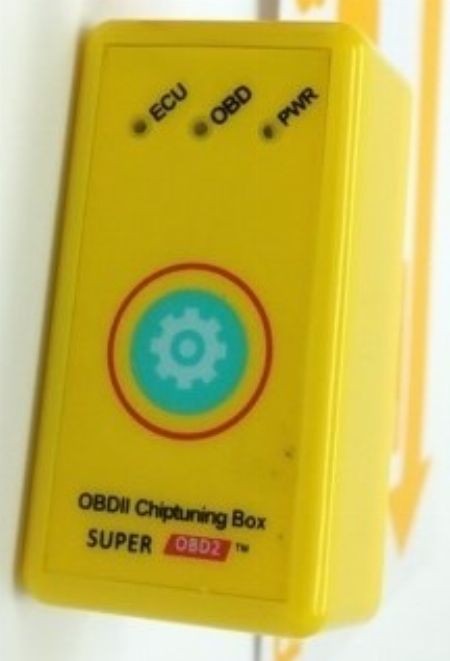The allure of plug-and-play performance enhancements is strong, especially in the automotive world. OBD2 chip tuning boxes, like the ChipPower device, tap into this desire, promising easy horsepower gains. Initially, there’s hope that these units, seemingly more sophisticated than basic “Nitro OBD2” dongles, might offer a genuine performance boost. The ChipPower box, with its elaborate design, certainly appears to be a step above the most rudimentary devices.
However, skepticism quickly arises when considering the fundamental mechanics of engine tuning. Many experts argue that these OBD2 plug-in modules, regardless of their branding or perceived sophistication, often fail to deliver on their performance promises. They are frequently categorized alongside simple LED blinkers, designed to create a visual impression of modification without actually altering engine parameters. As famously demonstrated by Mighty Car Mods, many such “plug-n-play” devices are essentially ineffective. Legitimate performance tuning typically requires a more involved process of ECU remapping, where fuel and ignition tables are directly modified.
The “Nitro OBD2” device serves as a prime example of this deceptive practice. These inexpensive dongles, readily available online, often feature flashing LEDs to simulate activity, yet lack the capability to communicate effectively with the Engine Control Unit (ECU) and adjust engine settings. Reverse engineering and numerous online videos have exposed the Nitro OBD2 as a scam, highlighting its internal chip designed solely for blinking LEDs, responding to voltage from OBD2 pins without sending any performance-enhancing signals back. While boxes like the ChipPower may appear more advanced than a Nitro OBD2, the core question remains: do they truly remap the ECU, or are they simply more elaborate versions of the same deceptive principle? For genuine performance gains, ECU remapping by qualified tuners is generally considered the reliable and effective approach, contrasting sharply with the unverified claims of many OBD2 tuning boxes.
